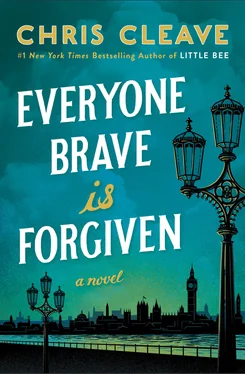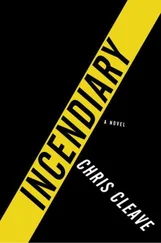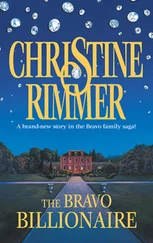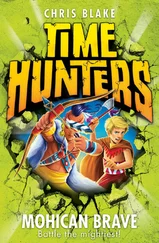“Heath! There you are, you tardy bastard!”
“Simonson,” said Alistair, saluting with as much precision as it merited.
“Get in the truck, won’t you? Anyone would think you didn’t want to go on holiday.”
Alistair climbed up into the passenger seat of the Bedford. Simonson started the big petrol engine and put it into gear straight away, so as not to waste an iota of fuel. The men had gone ahead in a fleet of requisitioned charabancs and wagons, most of them horse-drawn, dispatched along the road at irregular intervals to avoid drawing the enemy fighter aircraft which were now almost unopposed. Alistair and Simonson drove out over the main drawbridge. The quartermaster had issued them with a full load of artillery shells to take to the fort, and enough petrol — measured with a metal pipette to the nearest fluid ounce — to get them exactly to their destination providing that they coasted down hills.
Simonson piloted them through the ruins of Valletta. Alistair dropped the side window and enjoyed the warmth of the early morning. It was the right time of day to be making the trip out of the city. The sun wasn’t too hot yet. The aces of the Luftwaffe were still on the ground in Sicily, signing photographs of themselves or doing whatever they did between bombing trips to a defenseless island.
The two captains rolled through the winding canyons that had been made in the vast acres of rubble. Every building seemed to have been reduced to the infinite repetition of the same yellow stone block, two feet long by one across by one deep. It was the atom of civilization, the largest component that two men could lift between them.
Simonson scowled through the dusty windshield.
“Looks like my alphabet blocks after Randy found the castles I made.”
“Heard from your dear brother lately?”
“Oh, he won’t write. I’d be astonished if the bastard can even read.”
“Hasn’t he had his call-up yet?”
Simonson fixed Alistair with a look of delighted condescension. “Dear boy. They have to keep a few good men back. Otherwise we chaps might all get home from this jollity and demand the keys to the kingdom.”
“Would that be so frightful?”
“You are a sluggish learner. Perhaps you are slightly retarded.”
“I’m sure you used to be funny.”
“Too many casualties of late, Alistair, that’s all.”
Alistair looked at him, and Simonson looked ahead at the road. It was the first time Simonson had used his first name.
Alistair said, “I never thought you minded much, about the men.”
Simonson cut the engine and coasted to a halt. He pulled the handbrake on and searched for his cigarettes in the pockets of his tunic.
“I didn’t mind at first. When Dryden was killed, I thought, Well, that’s his lookout. And then Norris got it — such a terrible bloody aimer — and I was just glad it wasn’t someone useful, like Carter.”
Alistair nodded. “I’m sure Norris is a better shot now he’s dead.”
“Well, exactly. And in any case I have never been fond of the men the way you are. I hardly understand them and I always supposed I had no more feeling for them than I do for cats. But then the next week Carter was killed after all, and I remember looking down at his body. We knew it was him by his wristwatch. His face wasn’t where he left it, you see, and it made me furious. I don’t know why that should be. It’s not as if he was a handsome man in life. And yet I remember thinking: I would bury you myself. You know how hard it is to dig a grave on this island. Three inches of soil and then solid rock. But I would have done it, if the men had let me. And then Vickers was killed, and Cullen, and Casey, and Urquhart — all in that one dreadful week, do you remember? — and I have been desperately angry ever since. I actually loathe being an officer.”
He exhaled smoke and pressed his thumbs to his eyes.
Alistair patted his shoulder. “It could be worse — you could make major.”
Simonson took Alistair’s arm and held it. “All of this will stick to us, you’ll see.”
“After the war, you mean?”
“ ‘The men will loathe us. If any of the poor bastards are left.”
“The men don’t hate officers.”
“It is the men’s function to hate us. The fact that you don’t understand it only shows your lack of breeding.”
Alistair grinned. Simonson turned the ignition. “My brother won’t be called up. England won’t change. It was built with its blocks, the same as this damned island. When they reuse the rubble, you will see that it can only fit back together one way.”
“I will bet you five pounds that England is different, after the war.”
“Oh, spare us.”
“Don’t you think we shall all be kinder to one another? I hope one’s class will matter less and one’s convictions more. I hope we might be more inclined to pardon one another for our errors with both.”
“I bet you five pounds we shan’t see war’s end.”
“That’s not a bet I could ever collect on.”
“See how it works?” said Simonson.
He let out the clutch and steered the truck down the rubble-strewn road. They lurched on, through the interlocking turrets and ramparts that marked the limit of the city. They were terrific fortifications and would prove their worth the next time the Ottoman Turks invaded. In the meantime they would be useless against the German air assault.
Perhaps Simonson was right that the regiment would not survive the siege. They were all turning to stone from hunger. They took cover behind stone walls. They painted their trucks and their helmets and their guns to resemble stone blocks, as if by sympathetic magic some hardness might accrue. They saw rubble walls when they closed their eyes at night. Sometimes, when one was particularly hungry, the omnipresent yellow limestone had the exact hue of cheddar, and when the enemy’s paratroopers finally came it would afford about as much protection.
Alistair rested a notepad on the dash and dug out a stub of pencil.
To: Mary North, c/o Mairie & Northe
From: Allis, Terre & Heythe, Solicitors at Law
Re: A guided tour of the island of Malta
Madam,
Our client, Alistair Heath (Cpt, RA) commands us to convey to you—
“Oh for Christ’s sake,” said Simonson. “You are like love-struck schoolchildren passing notes.”
Alistair looked back at him mildly. “So?”
“So, teacher says there’s a war on.”
“It’s just a bit of fun.”
“Well it is sickening to be around. So you are in love — bully for you. You’re not obliged to rub it in everyone’s face.”
“Oh come on, Simonson, you know I only have eyes for you.”
He looked over, but Simonson only stared ahead at the road. Alistair put the pad back in his pocket.
At the city’s edge the fortifications gave way to a treeless plain of small fields no larger than suburban gardens, enclosed as far as the horizon by a tracery of dry stone walls. It was arid land, with dry yellow grasses in tufts. Poor crops of oranges and artichokes struggled in the thin yellow soil. Dusty stands of barbary fig rose along the lines of the walls, and in the ditches teasels and reedy bamboo were footed in unseen damp. There were small rock escarpments, indistinguishable in hue from the walls, so that the eye lost the distinction between the man-made and the natural. One scarcely cared in any case. It was wretched country, the kind no man would bother to wall in if any other land were available.
“Damn it,” said Simonson. “I’m sorry.”
“No, you are quite right.”
“You must write as and when you please. Don’t mind my sour grapes.”
“I wouldn’t mind grapes of any kind. Who’s fussy these days?”
Читать дальше












